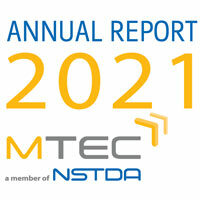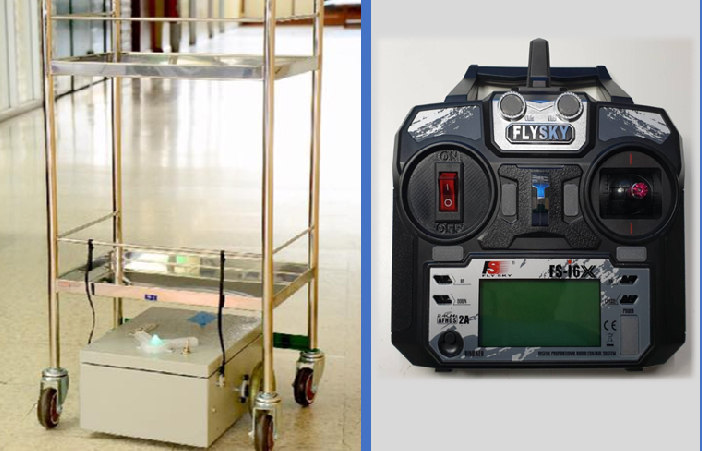An ongoing global pandemic of coronavirus disease 2019 (COVID-19) has been devastating and, in a country like Thailand, is currently worsening, with rising daily numbers of cases and deaths. In COVID wards, costly personal protection equipment (PPE) suits need to be worn by medical staff every time they come into contact with the patients and need to be discarded afterward.
Remote-controlled carts can replace the staff’s in-person visits in many situations, helping reduce their risk exposure and PPE usages. Existing industrial automated delivery carts require supporting infrastructures, such as guiding floor paths or prebuilt digital floorplans, which are expensive and impractical to construct for COVID wards, especially ones that are set up temporarily in emergency. Other remote-controlled carts developed exclusively for COVID situations exist but still have many drawbacks, such as high costs, complicated navigation control, low durability, cleaning difficulty, and risks of electromagnetic interference with medical devices.
A remote-controlled cart, called Aree has thus been designed and developed to overcome the aforementioned limitations and fulfill user requirements for delivery in COVID wards. The Baukastenentwicklung product engineering principle was leveraged to develop Aree by using components that are locally commercially available, in order to achieve inexpensive and fast manufacturability (Design for Manufacturing). After several iterations of design, engineering, and improvement, the latest prototype of Aree costs approximately 13,000 THB to produce. It passed standard electromagnetic interference tests for medical devices. Trial usages at Prasat Neurological Institute demonstrated that the Aree carts could save up to 6-10 PPE suits per day, reduce infection risk exposure and improve psychological toll. As of October 2021, there are 85 hospitals using the Aree carts in the COVID wards, and over 100 other hospitals have requested the devices.
Research Team
Dr. Korkiat Sedchaicharn, Dr. Sittha Sukkasi, Anek Phuchamnong, Surachai Rodsai and Foifon Srisawat
Note: This project is currently under the Rail and Modern Transports Research Center

